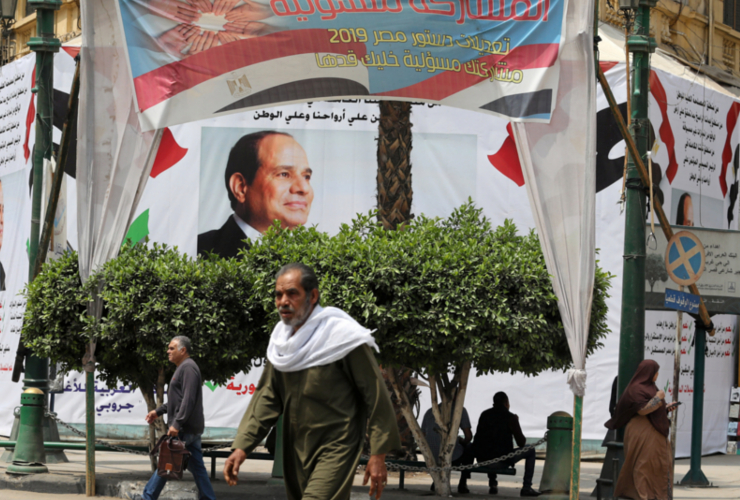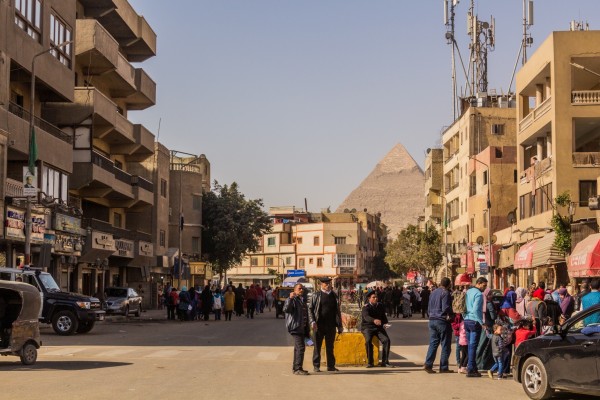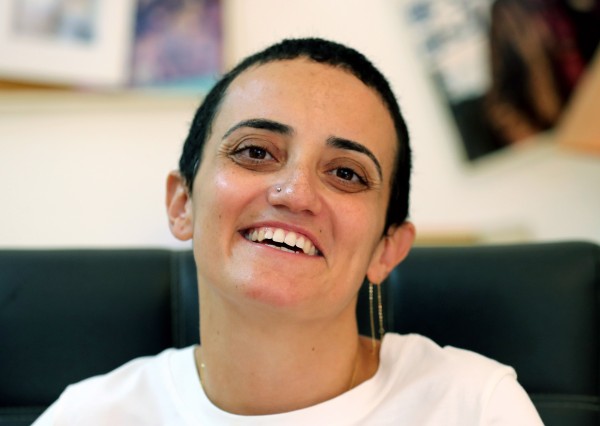Last year, 19 journalists were jailed on “false news” charges in Egypt, and more than 30 journalists are currently believed to be behind bars. But while the International Press Institute (IPI) continues to press for their release, the Egyptian government under President Fattah el-Sisi is constructing a powerful legal framework to support its crackdown on media freedom.
In April 2019, a constitutional amendment was passed in Egypt granting Sisi power over the judiciary and the right to remain in power until 2030. The amendment paves a clear path to strengthen his government’s restrictions on the rights of journalists. It appoints Sisi as chairman of the Supreme Judicial Council and gives him control over appointments to the courts. This modification extinguishes the illusion of separation of powers in Egypt.
“Egyptian courts have lost all independence and officially become an extension of governmental authority”, Abdelfattah Fayed, Al Jazeera’s editor of Egyptian affairs and former Cairo bureau chief for the network, said in a recent interview with IPI. He added: “The constitutional amendment will legalize all of the government’s procedures against journalists, especially regarding unfair trials.”
Although this amendment appears radical, is simply legalizes the status quo. “The powers Sisi has had over the judiciary for the past six years have been legalized and constitutionalized”, Cairo Institute for Human Rights Studies Deputy Director Ziad Abdeltawab explained to IPI.
Nevertheless, the amendment’s approval is likely to provide the grounds for a further clampdown on free speech in Egypt. “We definitely think that we will see more and more journalists being arrested in the next year, and also more restrictions on the work of foreign journalists”, Abdeltawab warned.
Shaping the legal system to entrench fear
Over the past few years, Sisi has unleashed a torrent of legislative change that “instrumentalizes every repressive tool” available and targets every aspect of civilian life, Abdeltawab said. Examples include amending the Penal Code and tightening anti-terrorism measures, restricting the right to protest, banning reporters from independently covering military operations, and freezing NGO activity. For Abdeltawab, this authoritarian legal framework “(undermines) the ability of independent media to be created or cover the events they want freely”.
One of the most significant obstacles to independent journalism came in the form of the Supreme Council for Media Regulation (SCMR), an administrative board established by Sisi in 2016 with powers beyond the courts. Its lack of independence – the president appoints the board members – is alarming.
In 2018, a sweeping media law gave the SCMR oversight of all media outlets, and imposed onerous licensing requirements including a registration fee of 100,000 Egyptian pounds (LE), or around 5,330 euros.
Additionally, the law gives the SCMR the power to block, suspend, ban, or impose fines of up to LE 250,000 (13,300 euros) on websites and even social media accounts that have over 5,000 followers. Since May 2017, over 500 websites have been blocked, including a six-month ban on news website al-Mashhad.
The law contains vague prohibitions on “false news”, “defamation”, “advocating indecency” and “pornography”, and allows the SCMR to censor publications from overseas on grounds of “national security”.
Egyptian authorities have justified the law on the grounds of combating terrorism. The country’s top prosecutor declared in February 2018 that the state deems legal action against media outlets necessary “in light of recently observed attempts by the ‘forces of evil’ to undermine the security and safety of the country through publishing lies and fake news through different media outlets and social media”.
The dismal news for media did not end there. In September 2018, another vastly disproportionate law known as the Cybercrime Law authorized broad censorship, online surveillance, and monitoring of internet users.
The Cybercrime Law was decried as unconstitutional in a statement by a coalition of national and international NGOs. However, Sisi’s authoritarian track record demonstrates minimal regard for constitutionality or lawfulness. “Sisi controls the judiciary completely. Because he controls the Supreme Constitutional Court, he has no fear that any of the laws that he’s trying to pass are going to be ruled unconstitutional”, Abdeltawab commented.
This restrictive regulatory framework creates an anxious climate. “A number of journalists set red lines for themselves as ‘self-censorship’ out of fear of persecution, especially as there are a lot of journalists behind bars because of their journalistic work”, Rawda Ahmed, a lawyer at the Arabic Network for Human Rights Information, said.
Ahmed indicated that more problematic media laws remain on the horizon. One example is the “Anti-Rumours Law“, recently submitted in parliament, which proposes penalties of imprisonment and a fine for publishing false news. The draft law has not been issued yet.
A thoroughly knotted system
Ultimately, however, individual laws and policies are only a part of the problem when it comes to Egypt’s crackdown on press freedom. “It’s the whole system, starting with the President”, Abdeltawab explained.
Under Sisi, authorities have stepped up efforts to assert editorial control over the media. State intelligence services have systematically purchased private newspapers and television channels and fired independent journalists. Said Sadek, a professor at the American University in Cairo, said in an interview with IPI that “open channels” exist between journalists and the state. Influence can also be more insidious; the media “understands what the government wants and what is allowed. (Influence) doesn’t have to be direct”.
Although the passing of the constitutional amendment was a dark day for democracy in Egypt, Abdeltawab highlighted an important silver lining: Three million Egyptians voted against the amendment. “This is an act of resistance that was unprecedented in the Egyptian electoral system”, he said.
He added: “The state had to acknowledge that three million voices said no to the constitutional amendment… Three million people all voicing up their concerns, saying the state is not being run the way they want it to be run, that it is becoming more totalitarian.”
International pressure remains powerful
Observers say that due to Egypt’s reliance on international assistance, pressure from abroad can still make a difference.
“We have seen an impact on journalists and bloggers who have been released because of direct international pressure that stems from international institutions”, Abdeltawab said. One high-profile example is Egyptian photojournalist Mahmoud Abu Zeid, known as Shawkan, who was released after more than five years in prison – albeit under restrictive conditions – after being recognized with an award from UNESCO.
Shawkan’s release aligns with Sisi’s pattern of releasing several journalists after years of detention, while continuing to detain many others without charges. As this trend “becomes more familiar and acceptable in society”, Fayed, who was managing Al Jazeera’s Cairo office when it was forcibly closed in 2010, fears the situation will worsen for journalists “day after day, with or without bills”.
In the meantime, reporters are fighting back. “There are many journalists who fight for their rights and the rights of society”, Fayed said. “They are ready to pay heavy prices; some of them are behind bars, others like me are forced to leave their home country… I am sure that the battle will continue and journalism will eventually be victorious.”
Over the past years, IPI has repeatedly called on Egypt to drop all charges against the dozens of journalists currently behind bars, including Ismail Alexandrani, who has been imprisoned without evidence or an official indictment since 2015 and Mahmoud Hussein, an Al Jazeera correspondent jailed since 2016. #PressEgypt is IPI’s campaign for their release.



